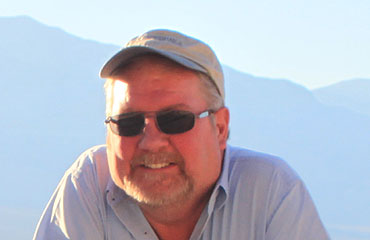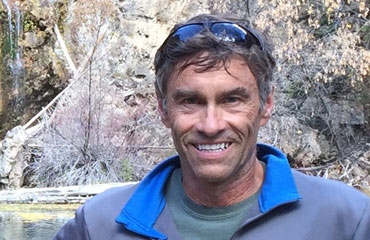Our Team
About our experts
TerraEx Group is a team of associated Geoscience experts, all renown in their respective fields and with extensive experience in training, consulting, field projects and software modeling. Experts create onsite and online modules, coach and support clients in their workflows and consult on projects.
Team of Experts

Catalina Luneburg, PhD
President
Structural Analysis and Modeling, validation of petroleum systems worldwide applying section balancing, 2D/3D restorations, HC reserve estimates, 3D framework models and fracture analysis.

Jim Granath, PhD
Associated Expert
Structural analysis, cross section construction and balancing, seismic interpretation; tectonics and regional geological synthesis in compressional and extensional settings; petroleum play analysis

Bob Ratliff, PhD
Associated Expert
Structural analysis and Structural restorations of numerous tectonic settings and HC systems worldwide, original developer of LithoTect software and renown instructor

Mark Rowan, PhD
Associated Expert
Salt Tectonics, i.e. styles/kinematics of salt, salt-sediment interaction, architecture/evolution of passive margins, applications to petroleum exploration.

Steve Boyer, PhD
Associated Expert
Structural analysis and Tectonics, i.e. cross-section balancing, 3D geometry/ kinematic evolution of fold-thrust systems, implications for fluid flow and HC generation/ migration

Sherilyn Williams-Stroud, PhD
Associated Expert
Fractured Reservoir Characterization; Microseismic, fracture modeling, structural restorations, reservoir stress/strain analysis, and rock fracture mechanics

Al Lacazette, PhD
Associated Expert
Fractured reservoir exploration, development, and simulation; reservoir-scale structural geology fluid-rock interaction; borehole imaging, hydraulic fracturing and Structural Geology

Amy Fox, PhD
Associated Expert
Geomechanics, in situ stress determination and mapping, wellbore stability analysis, induced seismicity, fault stability, critically stressed fracture analysis

Tanya Inks, MSc
Associated Expert
Seismic interpretation, processing QC; fractures, anisotropy and seismic attributes analysis, conventional and unconventional play analysis e.g. Marcellus Shales, Niobrara

Afshin, PhD
Associated Expert
Basin modeling, organic geochemistry, petroleum geology, exploration engineering

Margaret Lessenger, PhD
Associated Expert
Unconventional resource petrophysics, integrated petrophysical data analytics, basin-scale high-resolution sequence stratigraphy, and sedimentology

John Karlo, PhD
Associated Expert
Structural Geology/Tectonics, Seal Evaluation, Salt Tectonics, Deep Water Exploration, Risk Assessment

David Garner, MSc
Associated Expert
Applied Geostatistics and Geomodeling, Multi-disciplinary Reservoir Characterization

Ursula Hammes, PhD
Associated Expert
Sedimentology, stratigraphy, reservoir characterization, unconventional shale gas/oil analyses, geochemistry

Peter Flaig, PhD
Associated Expert
Fluvial-Deltaic-Shallow Marine Reservoir Characterization, 2D-3D High-resolution Image Capture and Analysis, Ichnology and Paleopedology

Katie Joe McDonough, PhD
Associated Expert
Sequence stratigraphy, stratigraphic basin analysis, exploration play

Alexei Mikov, PhD
Associated Expert
Petroleum System Modeling, unconventional reservoirs, oil & gas geochemistry, exploration risk analysis, resource assessment, and portfolio analysis

Tim Buddin, PhD
Associated Expert
Structural modeling, restoration, geomechanical forward models, regional to reservoir, salt tectonics, thrust belts, extension and inversion

Eric Scott, PhD
Associated Expert
Petroleum Geologist, Sedimentology, Stratigraphy, Seismic Interpretation, HC Volumetric Assessment, Geologic Risking

Farrukh Ahmad, PhD
Associated Expert
Seismic interpretation & attributes, Prospect maturation & risk assessment, Acreage & prospect evaluation, Coaching & Mentoring
Latest Publictions
“Why it is critical to Balance your Interpretation” by Catalina Luneburg
Why should we balance our interpretation and how involved is the process? What are the problems and how [...]
ACE 2020
Visit our booth at the ACE 2020 in Houston, TX Meet our experts and discuss service plans customized [...]



